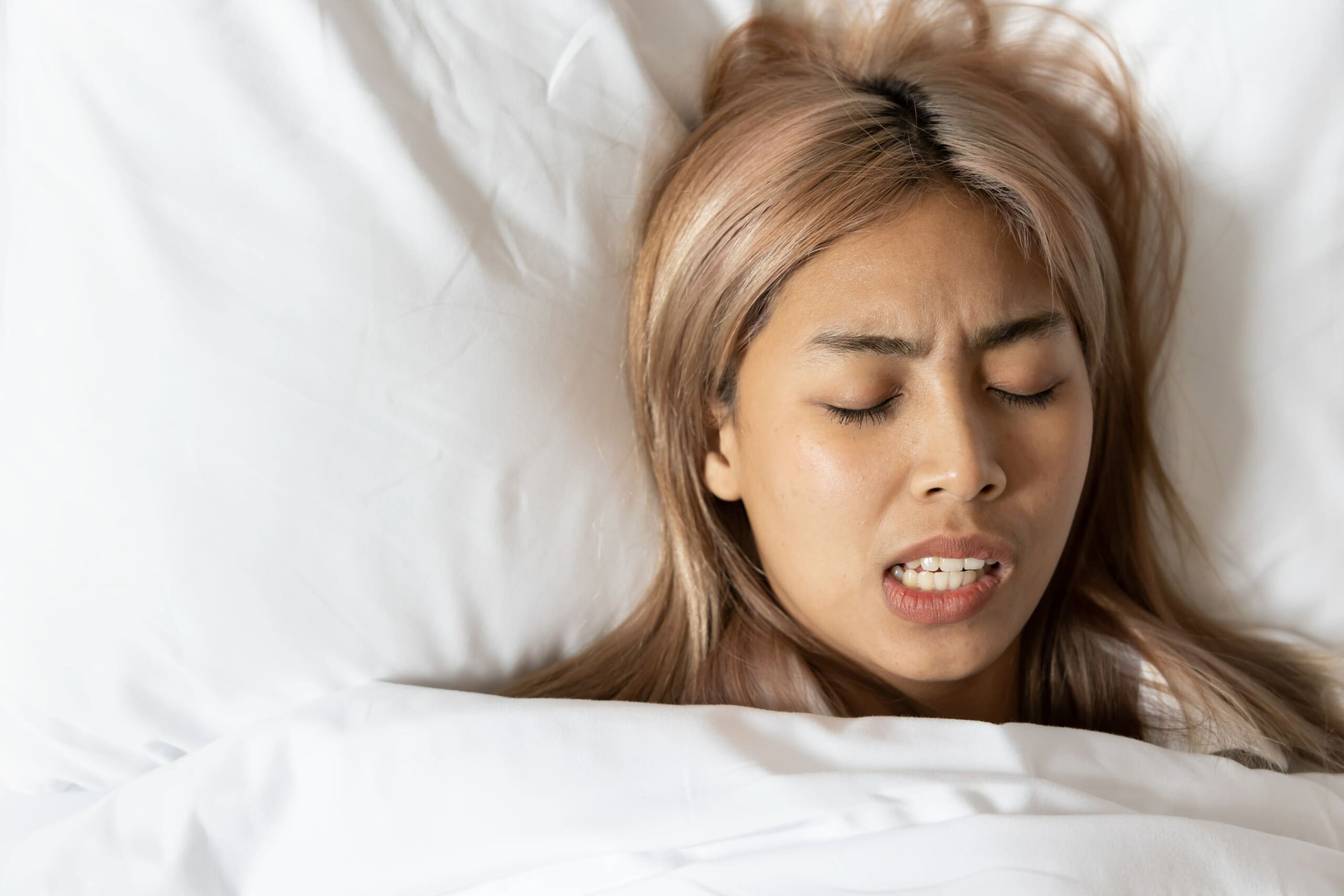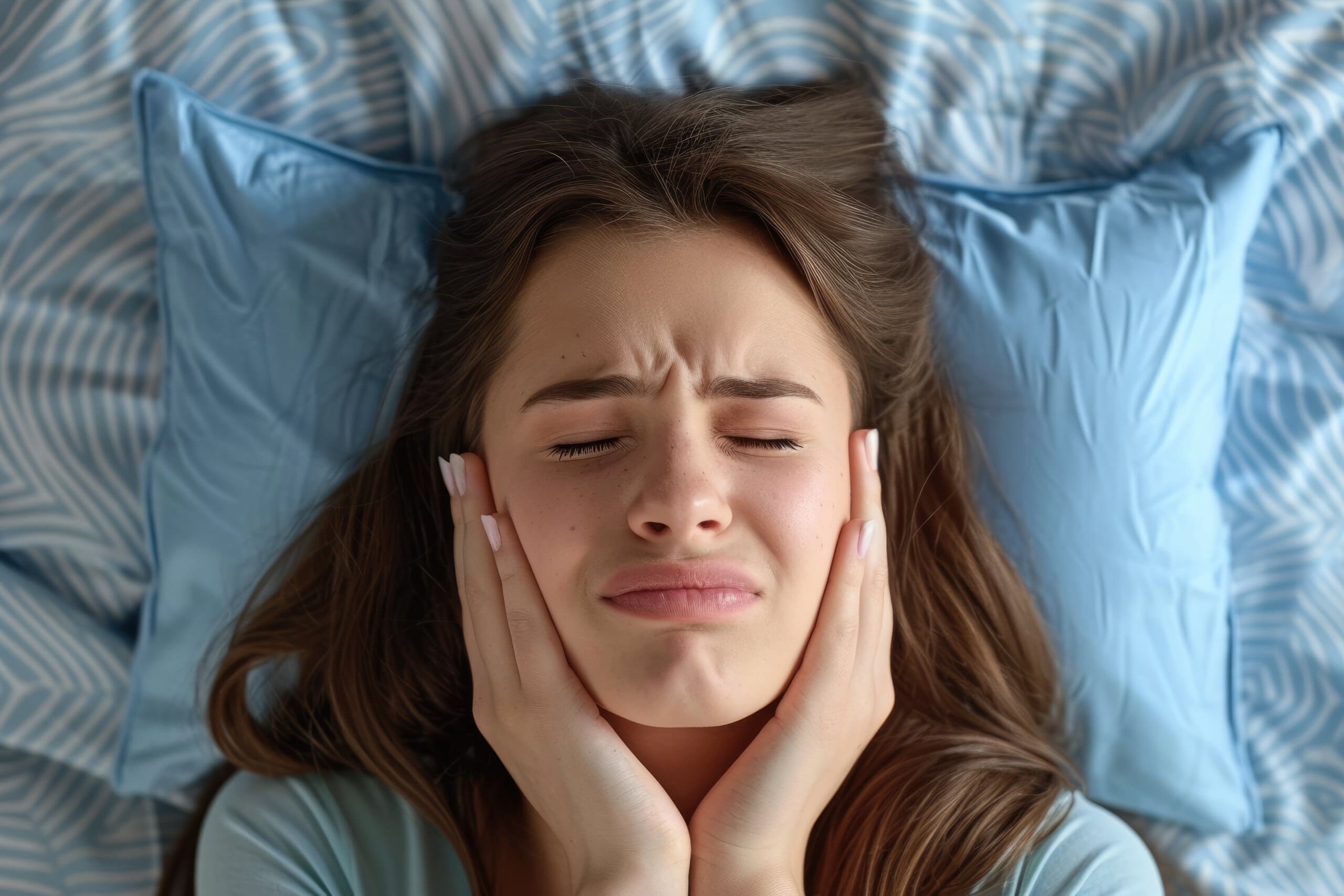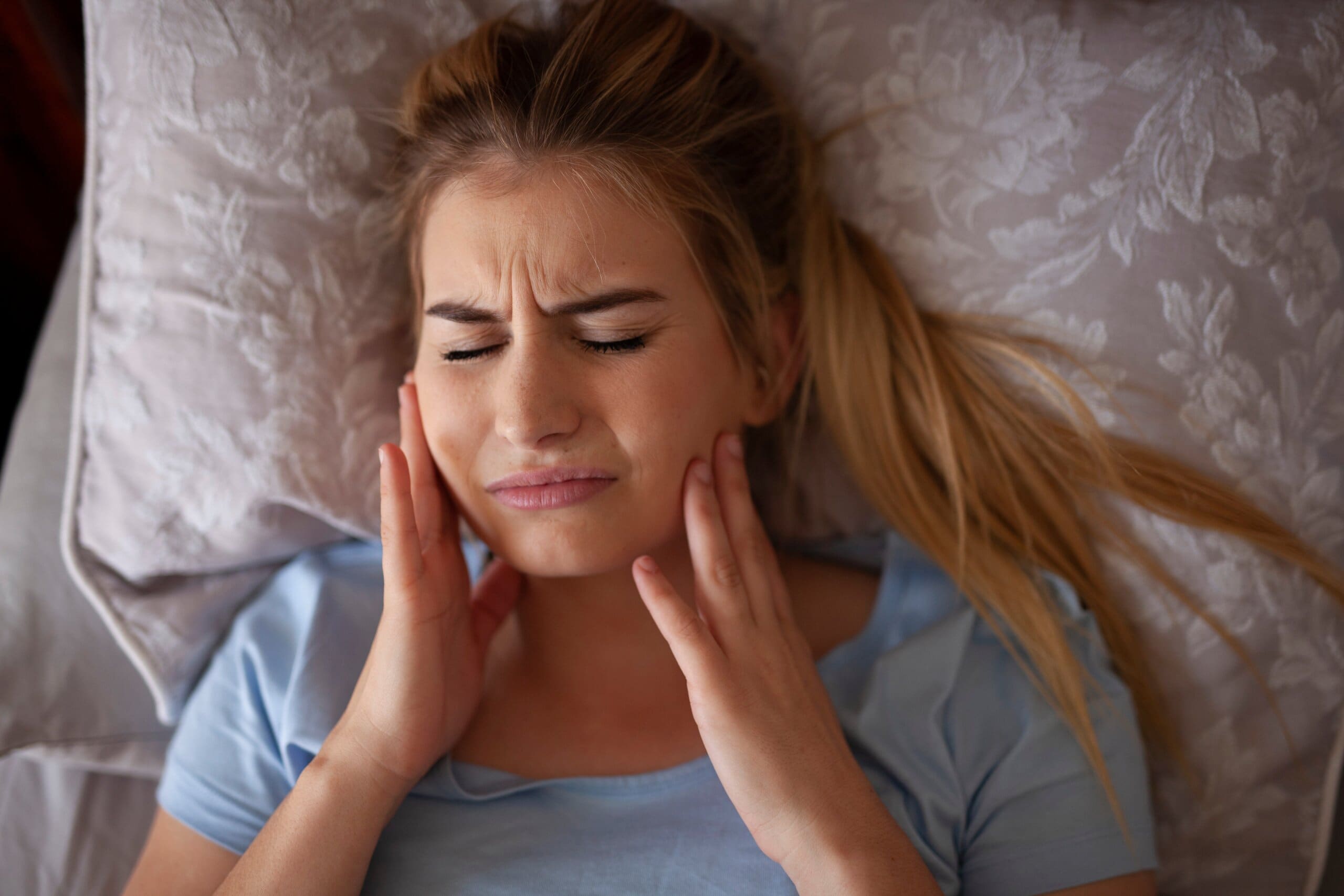Have you ever woken up from a night’s sleep and felt that your mouth was sore? Maybe it felt like your teeth were clenched together all night? Then there’s a high chance you have been experiencing bruxism, a common sleep condition that involves grinding your teeth in your sleep. This guide will explain what bruxism is, how you can deal with it, and some simple mouth exercises you can do to help you cope with bruxism.

What is bruxism?
Bruxism is a sleep condition that is generally caused by stress or anxiety, which causes you to subconsciously clench or grind your teeth while you are asleep, and even sometimes when you’re awake but unaware. You won’t be consciously doing it, but your mouth will open and close and your jaws will clench together.
It affects around 8-10% of the population, with the majority being adults. It can often cause issues with areas of your head, including problems with your jaws, headaches, and damage to your teeth by wearing them away or even cracking them.
Why do I grind my teeth in my sleep?
As we mentioned above, bruxism occurs when you’re experiencing high levels of stress or anxiety. This could be because:
- You’re experiencing big life changes that have caused a lot of stress, such as changes to your career, where you live, or your relationships with loved ones
- You already have a mental health condition such as depression, anxiety, or Parkinson's
- You have taken stimulants that can exacerbate the condition, such as ecstasy, cocaine, or anti-depressants
- You are already suffering from another sleep disorder – there’s a strong correlation between sleep apnoea and bruxism, as well as sleep talking and REM sleep disorders
How to stop grinding my teeth at night
There is no single cure for bruxism, however, managing your other conditions or circumstances will go a long way towards helping reduce the bruxism you experience. Maintaining a healthy sleep routine, practising meditation and calming exercises before you sleep, and looking after your mental and physical health throughout the day will all contribute towards helping you beat your bruxism.
Treatment for the effects of bruxism will cover multiple things: treatment for any pain you have when you wake up, exercises to loosen your jaw and mouth muscles, and protecting your teeth. Here are some of our expert tips to help you treat your bruxism at home:
- Avoid certain foods. This includes hard food like sweets and nuts, sticky foods like peanut butter, and foods that exercise your jaw like gum and tough meat
- Adjust your sleeping position or pillow for additional head and neck support
- Manage pain with an ice pack, hot cloth, and painkillers
- Find ways to relax before bed – for example, by doing breathing exercises, listening to music, and taking regular exercise
Mouth exercises to help with bruxism
Alongside these home remedies, you can also try some mouth exercises to help loosen the muscles around your jaw and mouth before you go to sleep and when you wake up in the morning. These are called Temporomandibular (TMJ) exercises because of the specific joint that they target which hinges on your lower jaw.
Exercise 1
- Sit in an upright chair.
- Close your mouth, making sure your teeth are touching but not clenched – separate them by placing your tongue on the roof of your mouth.
- Run the tip of your tongue backward along the roof of your mouth towards your throat, keeping your teeth together.
- Slowly open your mouth until you feel your tongue break contact with the roof of your mouth.
- Hold this position for five seconds, then relax your mouth again.
- Repeat this process for five minutes.
Exercise 2
- Sit in an upright chair.
- Place a finger on your jaw joint, to make sure it doesn’t click.
- Place another finger on your chin to hold it in place, to make sure you’re not pushing your lower jaw forward too far.
- Slowly open and close your mouth, making sure you keep the movement steady and smooth.
- Repeat the exercise ten times.
Both of these exercises are designed to help you increase your control over your jaw and loosen the muscles so that they are less likely to clench or lock up.

When to see a doctor about grinding your teeth in your sleep
You may find that if none of the home remedies or mouth exercises are working for you, then you may need to get in touch with your GP or dentist to help you with a more tailored solution. Another good remedy can be to have a custom mouthguard made that you can wear while you sleep.
Mouthguards, sometimes called night guards, do two main things:
- Stop your teeth from grinding: They act like a helmet for your teeth, stopping them from getting damaged when you grind your teeth in your sleep
- Help your jaw relax: Some guards even hold your jaw slightly open a bit, giving your chewing muscles a rest throughout the night
While they can’t treat bruxism, they can help counteract the symptoms of it by keeping your teeth protected. There are lots of different sleep conditions out there that are closely linked, and you may find that treating one of the conditions helps to alleviate the others too. Check out our Snooze News guides for more information on different sleep conditions and advice on how to get the best night’s sleep you can. And if you’re already in the business of trying to craft the ultimate sleep routine, let us help you find the perfect mattress to fit.











